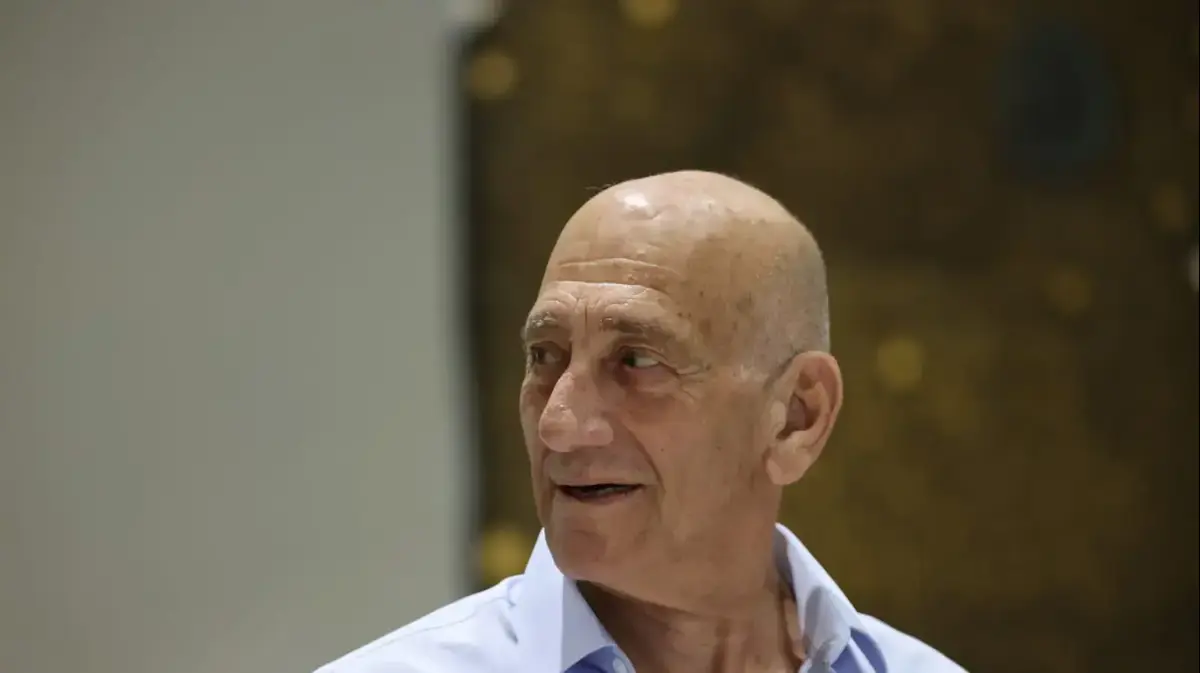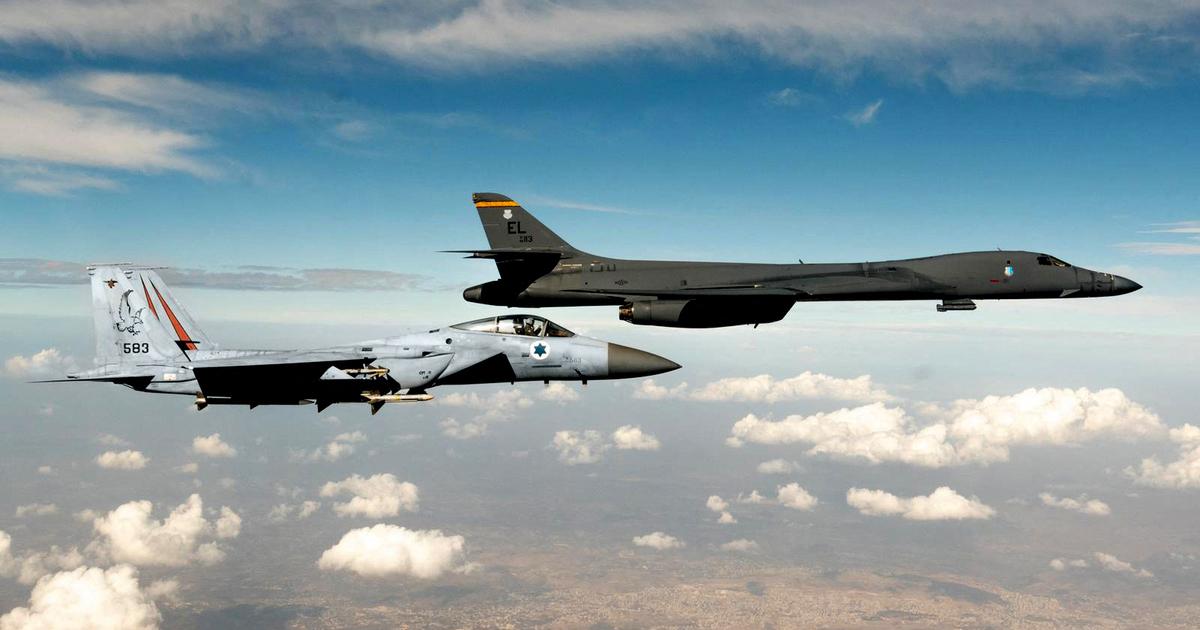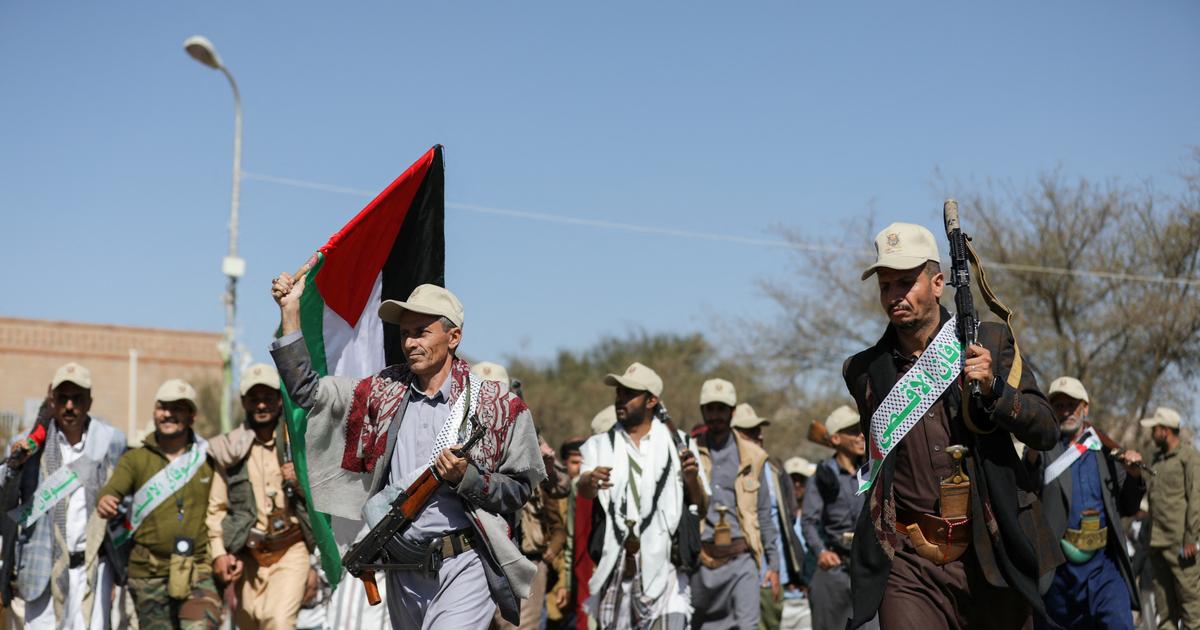Last week, as negotiations over judicial reform, Joe Biden's insult to Benjamin Netanyahu and the latest mass demonstration drew attention to Israel, its Air Force reportedly bombed three Tehran-linked targets in Syria in just four days.
Two members of the Revolutionary Guard died in one of them, the famous
pasdarán
.
Greek police had just arrested two Pakistanis suspected of planning an attack - whose logistics the Mossad attributes to Iran - against an Israeli restaurant in Athens.
And, on Sunday night, in full tension due to the previous bombardments, Israel shot down a drone "apparently coming from Syria" and behind which it also sees the hand of Tehran.
This Monday, the Israeli Air Force shot down another drone over the sky of Gaza.
The Israeli bombardments in Syria are no exception.
Military analysts put them in the hundreds since Iranian forces and their allied Lebanese militia, Hezbollah, began arriving in the neighboring country in 2012 to help President Bashar al-Assad.
Israel (which rarely acknowledges its operations abroad) has set itself the goal of preventing Tehran from taking advantage of the troubled waters of the Syrian war to turn Israel's second neighboring country (after Lebanon) into a base from which to launch missiles.
It has achieved this with the blessing of Russia (which effectively controls Syrian airspace) and taking advantage of the Damascus regime's inability to deal with both a long and exhausting internal conflict and the most powerful army in the Middle East.
By the way,
Israeli defense ministers often speak in code, using abstract terms like "our enemies" or "threats we face."
Yoav Gallant, however, was clear this Sunday.
“We will not allow the Iranians and Hezbollah to harm us.
We have not allowed it in the past and we will not allow it now, or at any time in the future.
When necessary, we will expel them from Syria to where they belong, which is Iran,” he declared during a visit to the troops deployed in the occupied Palestinian territory of the West Bank.
Gallant also assured that "the Iranians are extending their reach to Judea and Samaria [the official name in Israel for the West Bank] and Gaza, and are trying to entrench themselves in Syria and Lebanon."
An Israeli fighter shot down an "unidentified aerial device" on Monday in the Palestinian strip, before it reached the Israeli sky,
reported the Army.
He was from the armed wing of the Islamist Hamas movement, which controls Gaza, he later claimed.
Meir Javendafar, a professor of Iranian Security and Diplomacy studies at Reichman University in the city of Herzliya, north of Tel Aviv, interprets the latest attacks attributed to Israel as a message to Iran from the government of Benjamin Netanyahu: "not to be dare to think” that the internal turmoil over judicial reform (with massive demonstrations and refusals by Armed Forces reservists to carry out certain tasks) “implies military weakness” or opens a loophole for an attack.
Javendafar, an Israeli born in Tehran, also points to the growing normalization ―accelerated after the earthquake in Turkey and Syria last February― of the ties with El Asad by the same Arab countries that turned their backs on him and supported the rebels at the beginning of the war.
Some sources maintain, in fact, that Saudi Arabia will invite El Asad to the Arab League summit in Riyadh next May, after having normalized its relations with Iran last month, which has also recently approached Jordan, Egypt, the Emirates United Arabs and Bahrain.
Now that he controls most of Syria and the most populated areas, "Assad wants to rebuild the country's economy, and what Israel is telling him is that the Iranian presence is what prevents him from stability to do so," says the expert.
According to data from the Human Rights Observatory, Israel bombarded Syrian territory six times in March, the peak month of the crisis over judicial reform.
It is a higher number than usual.
Last Friday, the target was an arms and ammunition depot southwest of Damascus used by the Syrian Armed Forces and their Tehran-backed allies, according to the Observatory.
It was not Hezbollah militiamen who died, but two commanders of the Islamic Revolution Guards Corps, the ideological army of Iran after the ayatollahs took power in 1979. The Revolutionary Guard promised that "the false and criminal Zionist regime will undoubtedly receive an answer for the crime," according to Iran's Tasnim news agency.
They were military advisers who, according to the Saudi press,
they were trying to incorporate precision guidance systems into rockets.
It is precisely the shipments from these systems that Israel bombs over and over again in Syrian territory.
In Sunday's attack, two militants were killed and five Syrian air defense soldiers were wounded.
On target was again a weapons store, in the province of Homs.
"Israel is exacting a heavy price from the regimes that support terrorism," Netanyahu said hours later, at the start of the weekly cabinet meeting in Jerusalem.
The national press released images, attributed to an Israeli intelligence company, of damage to a military airport in the area.
In some recent cases, the message itself has been repetition.
In January, the Damascus airport had to temporarily close due to a shelling that killed two soldiers.
At the beginning of March, it was the turn of the Aleppo.
It resumed activity and two weeks later, it was rendered inoperative by another missile attack and had to redirect flights.
The covert conflict, which in Israel is called the
war between the wars
, does not just involve neighboring countries or ships in Gulf waters.
It extends to Iran itself and, since 2019, to Iraq.
Last January, three drones bombed a military center in the Iranian city of Isfahan, in an action that US official sources attributed to Mossad, Israel's foreign secret service.
These were quadcopter drones, already used in 2021 in a sabotage of uranium enrichment centrifuges and, two years earlier, in a Hezbollah stronghold in Beirut.
The Iranian nuclear program is the mother of the lamb.
Israel - which champions a strong-arm policy and tries to boycott international agreements to control Tehran's atomic program - is one of the few countries in the world and the only one in the Middle East with a nuclear arsenal.
If applicable, not recognized or endorsed by the Nuclear Non-Proliferation Agreement.
Since it obtained it in the 1950s, with the help of France, it has perceived it as the guarantee of its survival and is not willing to lose the strategic superiority it confers on it in the region.
In 2007, for example, Israel destroyed a nuclear reactor in Syria.
It is one of the few bombings abroad that it has formally recognized (11 years later).
Now, after Iran has enriched uranium to 84%,
Fears are growing that Netanyahu will attack Iran's nuclear facilities, likely triggering a regional war.
In his longest period in power (2009-2021), he was on the verge of ordering an attack, for which he needs a green light from the United States that he will hardly get in these moments of bilateral mistrust.
Follow all the international information on
and
, or in
our weekly newsletter
.
Subscribe to continue reading
Read without limits
Keep reading
I'm already a subscriber

/cloudfront-eu-central-1.images.arcpublishing.com/prisa/JPHTFSKLWFLGCK5D4LUYCAGID4.jpg)












